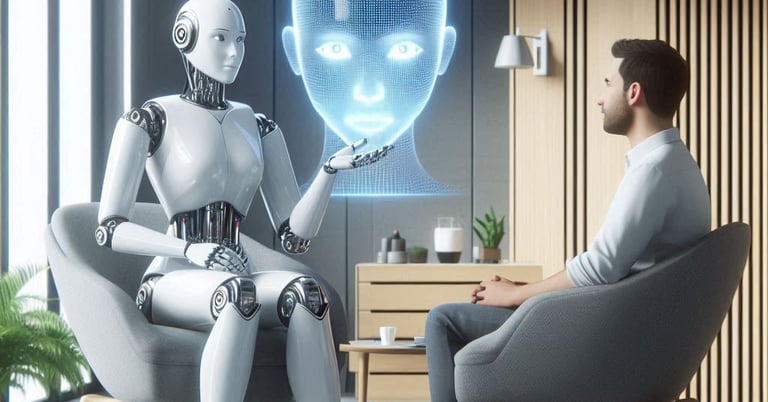Will AI Replace Mental Health Therapists? Here’s What You Need to Know
Will AI Replace Mental Health Therapists? Here’s What You Need to Know
Bob McTaggart
6/19/20252 min read


Will AI Replace Mental Health Therapists? Here’s What You Need to Know
As artificial intelligence (AI) continues to evolve, it's making its way into nearly every industry—including mental health. From AI chatbots to therapy apps, there's no doubt AI is changing the landscape of mental healthcare. But a common question is popping up:
Will AI replace human therapists?
Short answer? No. AI might be helpful, but it won’t replace the emotional depth and real-world experience of a trained mental health professional.
Here’s why human therapists still matter—and how AI can support, not replace, them.
Why AI Can’t Replace Therapists
1. AI Lacks Real Human Empathy
AI can mimic supportive language, but it doesn’t actually feel. Real therapists build emotional connections and trust, something essential to successful mental health treatment.
2. Non-Verbal Communication Matters
Body language, facial expressions, tone of voice—these cues give therapists important insights into how a person is really doing. AI doesn’t pick up on those subtle signals.
3. Cultural Sensitivity and Ethics
Therapists adapt their approach based on your background, values, and culture. They also make ethical decisions based on context. AI still struggles with these complex, human-centered nuances.
4. The Therapeutic Relationship Is Human
The connection between a therapist and client, called the therapeutic alliance, is a key part of healing. It’s based on trust, compassion, and understanding—things only real people can offer.
How AI Can Support Mental Health Services
While AI can’t replace therapists, it’s proving to be a valuable tool in improving access to mental health care and helping professionals work more efficiently. Here’s how:
✅ Increased Access to Mental Health Support
AI chatbots and virtual assistants can offer basic mental health support to people in remote areas or those who can’t afford traditional therapy.
✅ Early Detection of Mental Health Issues
AI can analyze data to detect early warning signs of depression, anxiety, or burnout, sometimes before a person even realizes they need help.
✅ Personalized Self-Help Tools
Many apps now use AI to offer customized mental health exercises, mindfulness techniques, and coping strategies based on user behavior.
✅ Triage for Mental Health Services
AI can help triage—quickly identifying who needs urgent mental health support and directing them to the right resources. This helps therapists focus their time where it’s most needed.
✅ Automation of Admin Tasks
From appointment reminders to digital note-taking, AI can handle repetitive tasks and free up time for therapists to focus on clinical care.
Last Thoughts
Artificial intelligence is making mental health care more accessible, efficient, and personalized. But human therapists aren’t going anywhere. The emotional intelligence, cultural sensitivity, and personal connection they offer can’t be coded into a machine.
Instead of viewing AI as a replacement, it’s better to see it as a powerful tool that supports therapists—helping them reach more people, faster, and with better outcomes.
